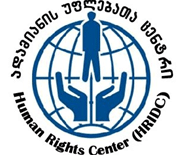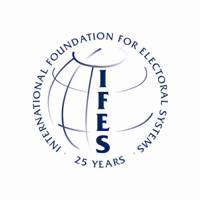Human Rights Center

TV Advertisements in the Post-Election Period
Salome Achba
After the parliamentary election, number of social advertisements has significantly decreased in TV-Companies; political advertisemetns are not aired at all. However, an interesting tendency was observed on Kavkasia, TV9 and Maestro – number and length of commercial advertisements increased.
In the post-election period (October 7-21) Human Rights Center’s media-monitors observed advertisements on Georgian TV-Companies. The project, in the frame of which media-monitors observed Public Broadcaster, Imedi, Rustavi 2, Kavkasia, Maestro and TV 9, is implemented through financial support from the International Foundation for Electoral Systems (IFES) within the framework of a four-year project, Increased Trust in Electoral Process (ITEP), financed by USAID (US Agency for International Development).
Social advertisements, which were aired before the elections and where signs of hidden advertisement were detected by group of monitors, have not been aired since October 1 (Made in Georgia, Defense Ministry – Total Care for People, etc).
Those advertisements mostly aimed to advertise successful projects initiated by the government or governmental institutions. During the pre-election period these advertisements were frequently aired by Rustavi 2, Imedi and Public Broadcaster. As a result of recommendations of Inter-Task Force Commission to the TV-Companies and government, only GPB ceased airing those advertisements but other TV-Channels still continued circulation of clips containing hidden political advertisement.
Neither entertaining music-clips have been aired by TV-Channels since elections; such as: Anaklia Is Eager to Welcome You, I Love Racha, I Love Tbilisi, I Love Svaneti. Several TV-channels, including GPB, showed those clips with the status of social advertisement.
”Those clips advertised various governmental projects and contained signs of hidden political advertisement. The fact that they are not aired after the election period finished, intensifies our doubt that their purpose was to advertise the achievements of the government,” the report of Human Rights Center’s Media-Monitoring reads.
Media-expert, head of Georgian Media-Monitoring Center Ia Mamaladze believes disappearance of those clips proves that they were part of election campaign.
“During pre-election period so-called national TV-Channels aired social advertisements which did not meet the criteria of the social ad with their context. Big part of those clips advertised various governmental institutions and state programs. We spoke much about it and claimed that advertisements contained signs of hidden advertisement. Those advertisements disappeared from TV-Channels after elections that gives ground to our doubt that those clips were part of the National Movement’s pre-election campaign and aimed to influence election process,” Mamaladze said.
Another interesting tendency that was revealed by post-election media-monitoring is that number of commercial advertisements on Maestro, TV9 and Kavkasia significantly increased. For example, whilst before elections advertisement network on TV9 was occupied only by announcements of TV-Company’s programs, pre-election political advertisements and several social ads, after election eventually they were replaced by commercial ads.
“So, we have feeling that changed political climate in the country after October 1 parliamentary elections changed the trends of advertising market too: business-groups got more active and braver to place their advertisements in the TV-Companies which were previously perceived as “oppositionist ones,” the HRC report reads.
Ia Mamaladze thinks, increased number of commercial ads on the aforementioned channels is directly connected with election results. “One of the main problems of Georgian media is that advertisement market is not free in our country. I think, after elections businessmen preferred to stand on the “winner’s side” and started placement their ads on the mentioned TV-Channels. Businessmen shall not depend on political process and election results when choosing relevant TV-Companies for their advertisements,” Ia Mamaladze said.
As for so-called national TV-Channels, number and length of commercial advertisements has not changed since elections in fact.


This blog is made possible by the support of the American people through the United States Agency for International Development (USAID). The contents are the sole responsibility of Human Rights Center and do not necessarily reflect the views of the International Foundation for Electoral Systems, USAID or the United States Government.




